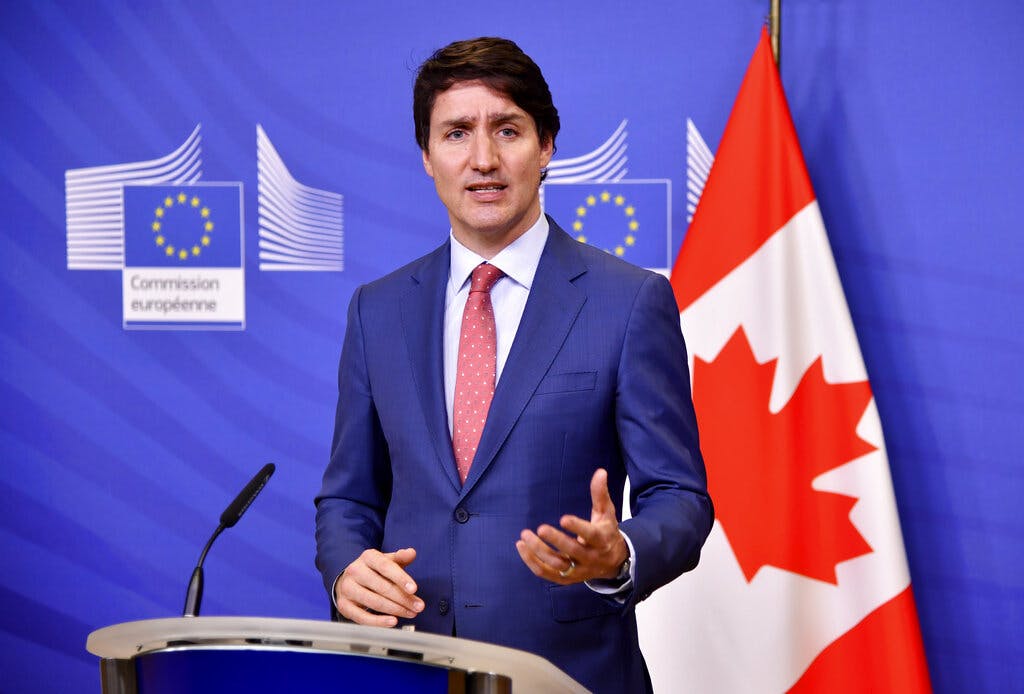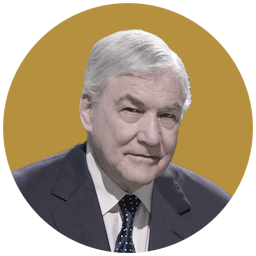Canada’s Military Aid to Ukraine Highlights Need To Boost Defense Spending
Since the end of the Cold War, Canada has considered military matters to be obsolete, and the current government believes we are in post-national times and that recourse to arms was an unthinkable relic of an earlier and primitive world of immature belligerents.

Almost the entire world outside of Russia has been impressed by the doughty and successful fight that Ukraine has put up against the barbarous assault of the Russian army and air force, and Canadians should be aware and distinctly proud of the assistance that our soldiers have given, along with several other NATO countries, in training the Ukrainian army up to the remarkable level of efficiency and effectiveness that it has shown in this war.
I am one of those who has decried the steady neglect and under-budgeting of our Armed Forces since the Mulroney years. It was particularly painful under the government of Prime Minister Stephen Harper, despite the best efforts of Defense Minister Peter MacKay, when the Conservatives talked a good military game but steadily shrank our defense capabilities. Even as this occurred, no one ever doubted the high quality of our military personnel, only their diminutive numbers and, in some cases, increasingly obsolete equipment.
In the opening days of Canada as an autonomous country in 1867, with a population of around 3.5 million, George-Étienne Cartier was our first minister of defense and militia and deployed a force of 50,000 men at the border points in southern Quebec, Niagara Falls, and Windsor, Ontario, to repel attacks from aggrieved Fenians (grumpy Irish-Americans) in America. That is approximately the strength of our current army, in a country of 38 million people.
In 1867, America had just emerged from its terrible Civil War and the Grand Army of the Republic, though it was being substantially demobilized, was the most powerful army in the world with the best generals, led by Ulysses S. Grant and William T. Sherman. America had no reservoir of goodwill for Britain or Canada after various provocations by the British during the Civil War, but the British were anxious to resolve their differences, and although it could easily have overrun Canada, the United States had no enthusiasm for plunging back into war with the British, which would have enabled superior British sea power to pound the American seaboard, a condition that would not be ameliorated by the conquest of Canada.
We thus had only the Fenians to contend with and Cartier’s force was sufficient to deal with the ragtag group of disgruntled, anglophobic Irish-Americans, whose grievances were with the British and not with us. Now that Canada is a G7 country and one of the 12 co-founding partners of NATO, which has grown to 30 nations, we are one of the most egregious freeloaders in the alliance, whose members have pledged to contribute the equivalent of 2 percent of their GDP to their defense budgets (our current defense expenses are about 1.39 percent).
Only the United States, the United Kingdom, Poland, and Estonia have habitually met that pledge, but Europe’s first war involving main units of large armies fully engaged since the end of the Second World War in 1945 has motivated almost all NATO countries to raise their game appreciably.
Most dramatic was when the new German chancellor, Olaf Scholz, suddenly took the podium in the Bundestag at the end of February and announced on behalf of his three-party coalition government that henceforth Germany would faithfully observe its 2 percent commitment and that it would begin with a 100 billion euro rearmament plan. Canada has been relying upon the United States Armed Forces to assure our own protection.
When FDR generously declared at Kingston, Ontario, in 1938 that the United States ”would not stand idly by” if Canada were attacked, this constituted an absolute guarantee of our territorial integrity from a country that Canada feared in the 18th and 19th centuries and had to defend itself against in the American Revolutionary War and the War of 1812. In exchange, Prime Minister W. L. Mackenzie King promised that Canada would do its full part to prevent any such invading power from attacking the United States via Canada.
The United States has faithfully adhered to the Roosevelt pledge and to its NATO obligations and we reciprocated until the last 25 years. Since the end of the Cold War, Canada has effectively considered military matters to be obsolete, and the current government, especially, has professed to believe that we are in post-national times and that recourse to arms was an unthinkable relic of an earlier and primitive world of immature belligerents.
This makes Canada’s contribution to strengthening the West at its most vulnerable point and training up the Ukrainian army all the more remarkable. After the disintegration of the Soviet Union in 1991 and the secession of all of the constituent republics, including Russia, the Russians had not entirely accepted that all the other republics should justly be independent of it, and the largest of them, Ukraine, was a particular target. Ukraine was a distinct political entity only as a Soviet republic, and approximately one-sixth of Ukraine’s 44 million people are ethnically Russian, live adjacent to Russia, and might well, if consulted, rather be Russians than Ukrainians.
President Putin intervened in the Ukrainian election of 2012 and helped elevate Viktor Yanukovych as president of Ukraine. When the West responded by supporting the Maidan Revolution of 2014 that deposed Mr. Yanukovych, Mr. Putin seized Crimea from Ukraine. It had only been given to Ukraine in 1954 by the then-Soviet leader Nikita Khrushchev, who had governed Ukraine for Stalin. Russia had a claim, though Ukraine did not accept the seizure but was helpless to prevent it.
Fearing, with good reason, that Mr. Putin could be back, Ukraine sought assistance from NATO in shaping up its army. Canada and several other countries responded. Perceiving weakness in the West and especially in the Biden administration (after the Afghanistan debacle), Mr. Putin declared his intention to occupy and absorb all of Ukraine and launched his invasion on February 24.
He did not take into account that Ukrainian forces were well armed, especially after receiving extensive assistance from the Trump administration. Nor did he take into account the fact that the Ukrainians, embarrassed at their inability to defend Crimea in 2014, had trained up an army of over 200,000 and substantially trained more than 200,000 reservists.
Canadians provided specific training in a range of activities from sniping to first-aid. It was a well-armed and well-trained force that met and repulsed Mr. Putin’s invasion. The Russians are now focusing on the Russian-speaking parts of eastern Ukraine, while continuing to believe they have a right to blast the civilian population with high explosive missiles at their pleasure and with impunity.
This challenge will have to be met, but in the meantime, Canada has incurred more gratitude in Europe for its military assistance than at any time since the First Canadian Army largely liberated the Netherlands in 1945. Prime Minister Trudeau should be commended for implying an armaments policy reversal in light of the barbarous Russian invasion. In a famous expression from Friedrich Schiller, “Late you come, but still you come” (if we really do).
National Post

